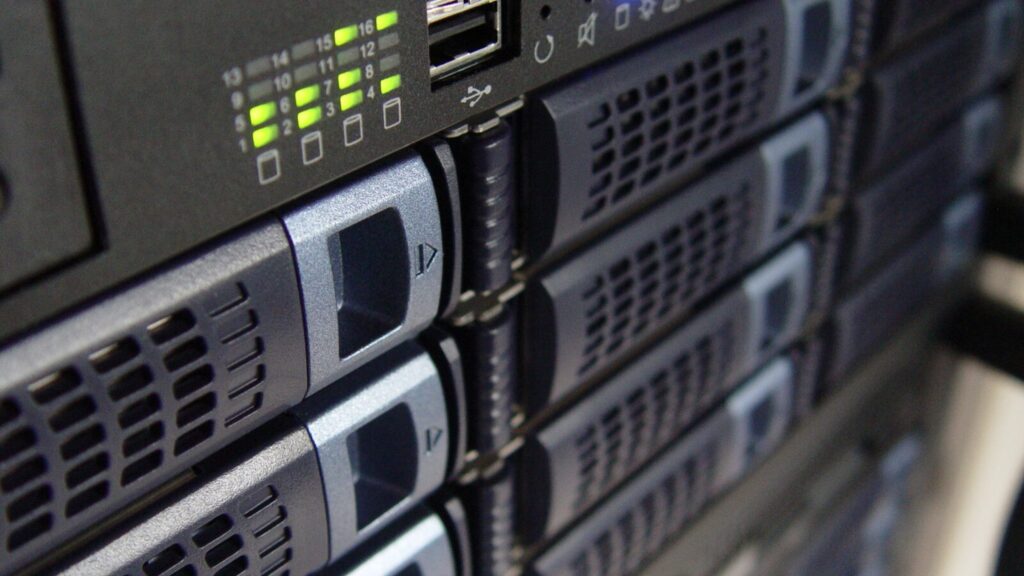TLDR: Outdated electronics may look like junk, but they carry hidden risks and value. A certified electronics recycler ensures devices are processed securely, sensitive data is destroyed, and harmful materials are kept out of the environment. Certification safeguards your company’s reputation, keeps you compliant, and supports sustainability goals.

When companies upgrade their technology, the focus is on the shiny new equipment — faster computers, better servers, smarter phones. But what about the gear left behind? All too often, outdated devices get wheeled into storage rooms or stacked in the warehouse, where they’re forgotten.
The problem is, those old devices don’t just lose their importance. They still hold sensitive data, precious metals, and potentially toxic components. Ignoring them can create risk. Tossing them out with regular trash can create environmental damage.
Certified electronics recycling is the solution. A certified electronics recycler follows strict industry standards to dismantle devices safely, recover valuable materials, and permanently destroy data. It’s the responsible way to close the loop on your technology lifecycle.
Why Certification Matters (R2, e-Stewards, etc.)
You wouldn’t hand your company’s financial records to just anyone. The same goes for your old computers and servers. Certification is proof that a recycler can be trusted.
Two of the most respected certifications are:
- R2 (Responsible Recycling) – Managed by Sustainable Electronics Recycling International (SERI), this standard sets requirements for environmental practices, worker safety, and data protection.
- e-Stewards – This certification goes further by banning the export of e-waste to developing countries and enforcing strict controls on hazardous materials.
Certification isn’t a marketing label, it’s an independent stamp of approval. It shows that a recycler has been audited, tested, and verified. When you choose a certified electronics recycler, you know your equipment is being handled correctly from start to finish.
Risks of Using Non-Certified Recyclers

Some recyclers call themselves “green” or “responsible,” but without certification, there’s no guarantee. Choosing the wrong partner can create serious consequences:
- Data Breaches – Old laptops and drives often contain sensitive customer or employee information. If that data isn’t wiped or shredded, it could resurface.
- Legal Trouble – Businesses are accountable for how their waste is managed. If a non-certified recycler dumps or exports your electronics illegally, your company could face fines.
- Damage to Reputation – A data leak or environmental scandal can make headlines fast. Being linked to unsafe recycling practices could cost you customers and credibility.
- Environmental Pollution – Electronics contain materials like lead and mercury. Improper disposal contaminates soil and water, causing long-term harm.
What looks like a cost-saving shortcut can actually expose your business to major financial and reputational risks.
How Cal Micro Ensures Compliance and Security
At Cal Micro Recycling, we’ve built trust by doing things the right way. As a certified electronics recycler, we provide businesses with a secure, compliant, and environmentally responsible solution.
Here’s how we make a difference:
- R2v3 Certification – Our facility meets the most current version of the R2 standard, covering data security, safe recycling, and environmental stewardship.
- Data Destruction Services – We provide certified wiping and shredding, with documentation so you can prove compliance.
- Regulatory Knowledge – We keep pace with California and federal rules, so our clients avoid costly penalties.
- Value Recovery – Before breaking down devices, we identify reusable parts and materials to help businesses recoup value.
- Clear Process – From pickup to final reporting, we give clients visibility into every step.
See our full range of services to learn how we can protect your business while recycling responsibly.
Environmental Benefits of Certified Processes
Working with a certified recycler isn’t just smart for business, it’s better for the planet too.
- Less Landfill Waste – According to the EPA, electronic waste is one of the fastest-growing waste streams. Certified recycling reduces what ends up in landfills.
- Resource Conservation – Electronics contain valuable metals like copper, gold, and silver. Recycling allows these to be recovered and reused, reducing the need for mining.
- Toxin Control – Devices contain hazardous substances like cadmium and mercury. Certified recyclers follow strict methods to keep them out of the environment.
- Corporate Sustainability – Many companies have environmental, social, and governance (ESG) goals. Certified recycling supports those commitments and shows accountability to customers and partners.
Making the Right Choice
So how do you ensure you’re choosing the right partner? Here are some practical tips:
- Check Their Credentials – Ask recyclers to provide proof of certification.
- Verify Online – Use SERI’s R2 directory or the e-Stewards directory to confirm.
- Request Data Destruction Proof – Always get reports that show how your devices were processed.
- Look for Transparency – Certified recyclers explain their methods openly and provide documentation.
Doing this homework ensures your company’s devices are managed safely, securely, and responsibly.
Secure, Compliant, and Ready When You Are
Don’t let old electronics pile up or end up in unsafe hands. Partner with a certified electronics recycler like Cal Micro Recycling to keep your business secure, compliant, and environmentally responsible.
Contact us today to build a customized recycling plan that protects your data and helps the planet.
FAQ: Certified Electronics Recycling
1. What makes a recycler “certified”?
Certification means the recycler has passed independent audits under programs like R2 or e-Stewards, proving they meet strict environmental and security standards.
2. What are the risks of using a non-certified recycler?
You could face data breaches, environmental fines, or reputational damage if your equipment is mishandled or dumped illegally.
3. How do certified recyclers destroy data?
They use approved processes such as digital wiping or physical shredding, ensuring sensitive information is gone for good.
4. Does certified recycling cost more?
Not necessarily. Certified recyclers often help recover value from equipment while avoiding the costly risks of improper disposal.
5. How do I verify certification?
Check directories like SERI’s R2 directory or the e-Stewards directory to confirm a recycler’s status.
